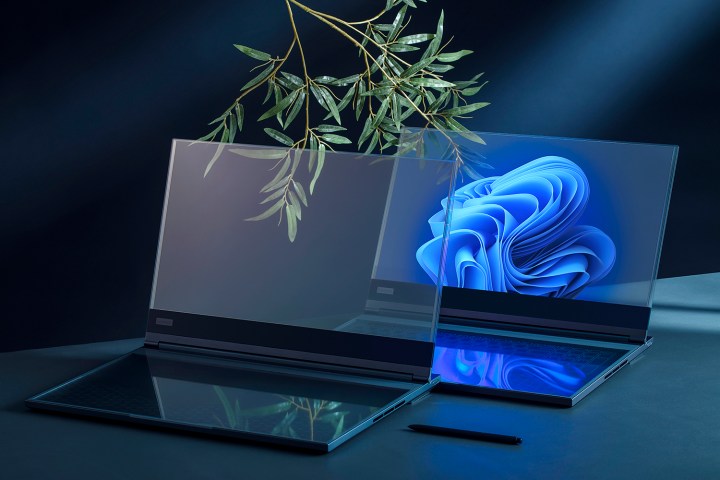
A major theme for this year already appears to be transparency, with staple brands such as Samsung and LG showcasing their see-through products — the transparent micro-LED display and the Signature OLED T transparent TV, respectively — at CES 2024 last month.
Now, Lenovo is giving the industry a look at its Lenovo ThinkBook Transparent Display laptop, a proof of concept that is a highlight of its presentation at Mobile World Congress 2024 (MWC) 2024 in Barcelona, Spain, this week. The company is calling the ThinkBook Transparent Display laptop the “concept car of laptops.” I got to check out the laptop before the conference and was blown away upon seeing the product in person.
“We’ve proven that it can be assembled in a way that would make sense for an ultimate product,” Lenovo product manager Katie Dungan told me.
The ThinkBook Transparent Display laptop features a 17.3-inch HD transparent display with a 120Hz refresh rate and 1,000 nits of brightness. Its MicroLED display lends more vibrancy, brightness, and color saturation within the transparent images. Lenovo played demo videos of fish swimming, Earth as seen from space, and other extraterrestrial clips to show the color range, as well as black-and-white contrast — and it remained more translucent, if not necessarily transparent, throughout.
The general screen with no program up has a slight brown or gray tint to it that reminded me of sunshades. There’s a clear demarcation between the display and the taskbar. This was unexplained but is surely a part of the technology.
The display is slightly dimmer from the rear, with a 55% transmittance rate in the back, according to Lenovo. This means though you can still see through the display, you’re seeing 55% of the brightness that you would see from the front.
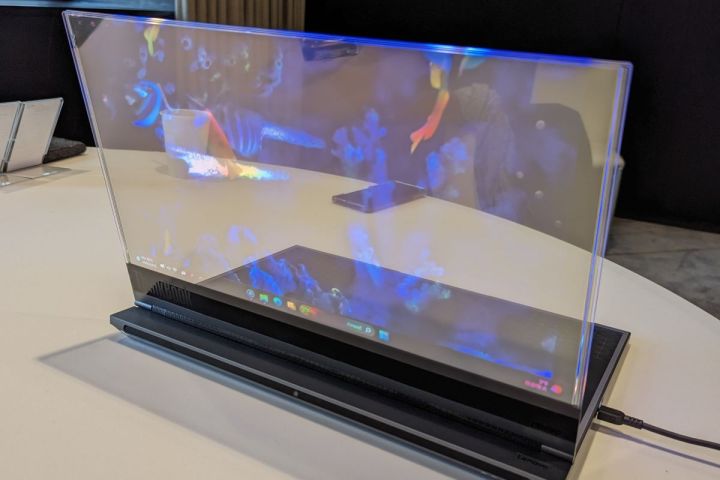
I found lighting and angles affected the transparent appearance of the display with a program up. I had a rag for a markerboard and a plastic plant as my test subjects. One of the demos was especially saturated and the colors took away from the see-through effect at times with the laptop placed in the middle of the room on a table.
Placing the laptop next to the window gave a great level of transparency and brightness; however, there was an extensive glare of other artifacts on the display and of the image onto the keyboard. One of the space demos was the perfect blend of color and transparency in the middle of the room.
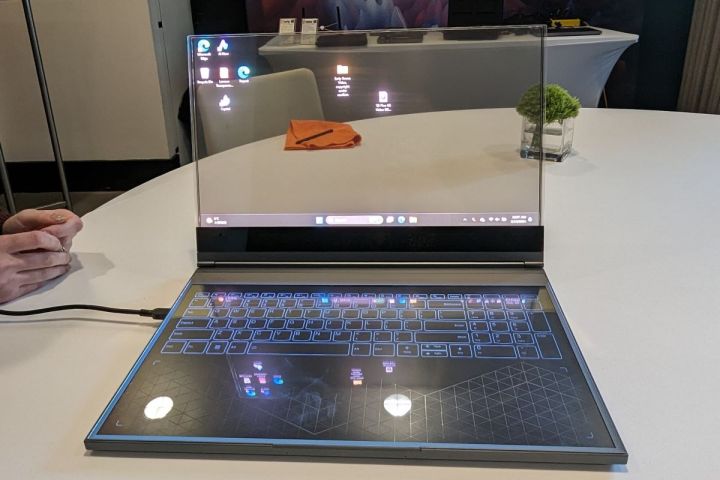
The touch keyboard is made of a similar material and can be turned off and laid flat on a drawing board. It pairs with a Wacom EMR pen for stylus functionality.
There is a set keyboard layout, but no touchpad boundary, so navigation was a tad challenging. Still, I was able to pull up the Microsoft Start menu, which was also slightly translucent. While the display is transparent, the keyboard is reflective. Whether that’s a feature or defect, I’m not sure.
The laptop also has a “world-facing camera” in the back, which Lenovo noted has the potential to work as a substitute for a full AR setup. The brand said there’s potential for capturing an image from the rear of the device, incorporating it into an art program, and projecting it through the front screen in AR.
Lenovo plans to showcase a similar demo on the show floor at MWC, which will entail putting an object in front of the laptop camera. It will scan it and pull up an outline with facts on the transparent display, similar to Google Lens, including links to find more information. The feature is powered by ThinkBook’s “AI now” software, according to Lenovo.
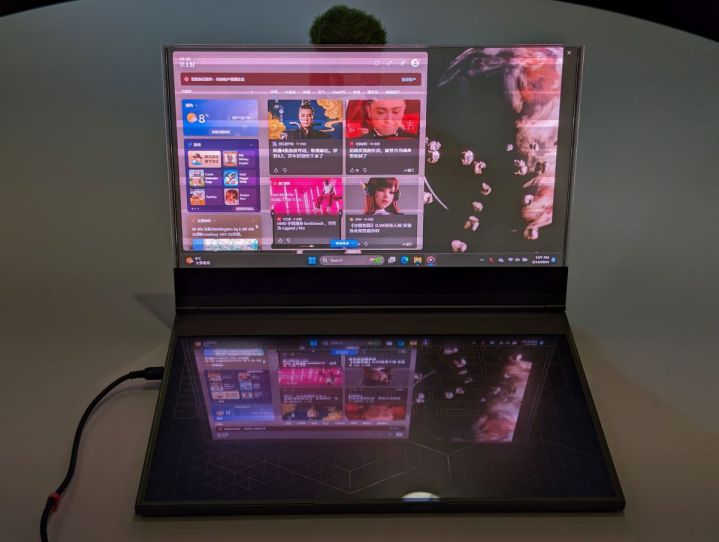
Another demo set for the MWC show floor is the Transparent Display laptop privacy screen, which will pull up a screen that blocks people sitting in your vicinity from seeing information on the transparent screen. The idea is to protect you from the theft of important data, such as credit card information.
All of this is neat, but the ThinkBook Transparent Display laptop isn’t currently a device set to come to market. However, Lenovo has suggested several potential use cases, including a machine for interior design mock-ups, as a hotel concierge, and in the education space to ensure children are not slacking on schoolwork.
The company added that it will continue to test ideas from this initial proof of concept and consider bringing future concepts down to upcoming lineups as technology becomes cheaper.
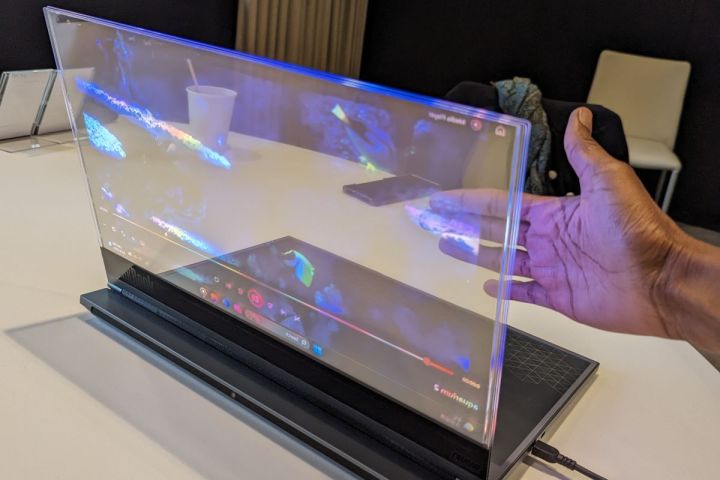
“You might think why, but it’s kind of a why not scenario. We’re just trying to push the boundary of what makes a laptop a laptop,” Dungan said.
Lenovo is certainly no stranger to experimentation, and it’s exciting to see traditional PC companies pushing the boundaries of what’s possible — even just to prove that it can be done.
Editors’ Recommendations

